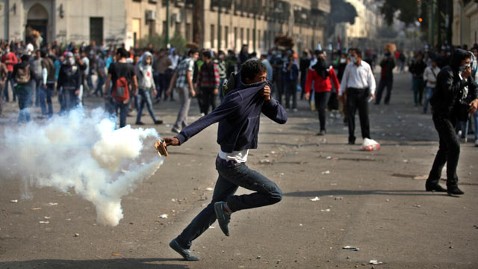CHICAGO (AP) — The now familiar term "Asperger's disorder" is being dropped. And abnormally bad and frequent temper tantrums will be given a scientific-sounding diagnosis called DMDD. But "dyslexia" and other learning disorders remain.
The revisions come in the first major rewrite in nearly 20 years of the diagnostic guide used by the nation's psychiatrists. Changes were approved Saturday.
Full details of all the revisions will come next May when the American Psychiatric Association's new diagnostic manual is published, but the impact will be huge, affecting millions of children and adults worldwide. The manual also is important for the insurance industry in deciding what treatment to pay for, and it helps schools decide how to allot special education.
This diagnostic guide "defines what constellations of symptoms" doctors recognize as mental disorders, said Dr. Mark Olfson, a Columbia University psychiatry professor. More important, he said, it "shapes who will receive what treatment. Even seemingly subtle changes to the criteria can have substantial effects on patterns of care."
Olfson was not involved in the revision process. The changes were approved Saturday in suburban Washington, D.C., by the psychiatric association's board of trustees.
The aim is not to expand the number of people diagnosed with mental illness, but to ensure that affected children and adults are more accurately diagnosed so they can get the most appropriate treatment, said Dr. David Kupfer. He chaired the task force in charge of revising the manual and is a psychiatry professor at the University of Pittsburgh.
One of the most hotly argued changes was how to define the various ranges of autism. Some advocates opposed the idea of dropping the specific diagnosis for Asperger's disorder. People with that disorder often have high intelligence and vast knowledge on narrow subjects but lack social skills. Some who have the condition embrace their quirkiness and vow to continue to use the label.
And some Asperger's families opposed any change, fearing their kids would lose a diagnosis and no longer be eligible for special services.
But the revision will not affect their education services, experts say.
The new manual adds the term "autism spectrum disorder," which already is used by many experts in the field. Asperger's disorder will be dropped and incorporated under that umbrella diagnosis. The new category will include kids with severe autism, who often don't talk or interact, as well as those with milder forms.
Kelli Gibson of Battle Creek, Mich., who has four sons with various forms of autism, said Saturday she welcomes the change. Her boys all had different labels in the old diagnostic manual, including a 14-year-old with Asperger's.
"To give it separate names never made sense to me," Gibson said. "To me, my children all had autism."
Three of her boys receive special education services in public school; the fourth is enrolled in a school for disabled children. The new autism diagnosis won't affect those services, Gibson said. She also has a 3-year-old daughter without autism.
People with dyslexia also were closely watching for the new updated doctors' guide. Many with the reading disorder did not want their diagnosis to be dropped. And it won't be. Instead, the new manual will have a broader learning disorder category to cover several conditions including dyslexia, which causes difficulty understanding letters and recognizing written words.
The trustees on Saturday made the final decision on what proposals made the cut; recommendations came from experts in several work groups assigned to evaluate different mental illnesses.
The revised guidebook "represents a significant step forward for the field. It will improve our ability to accurately diagnose psychiatric disorders," Dr. David Fassler, the group's treasurer and a University of Vermont psychiatry professor, said after the vote.
The shorthand name for the new edition, the organization's fifth revision of the Diagnostic and Statistical Manual, is DSM-5. Group leaders said specifics won't be disclosed until the manual is published but they confirmed some changes. A 2000 edition of the manual made minor changes but the last major edition was published in 1994.
Olfson said the manual "seeks to capture the current state of knowledge of psychiatric disorders. Since 2000 ... there have been important advances in our understanding of the nature of psychiatric disorders."
Catherine Lord, an autism expert at Weill Cornell Medical College in New York who was on the psychiatric group's autism task force, said anyone who met criteria for Asperger's in the old manual would be included in the new diagnosis.
One reason for the change is that some states and school systems don't provide services for children and adults with Asperger's, or provide fewer services than those given an autism diagnosis, she said.
Autism researcher Geraldine Dawson, chief science officer for the advocacy group Autism Speaks, said small studies have suggested the new criteria will be effective. But she said it will be crucial to monitor so that children don't lose services.
Other changes include:
—A new diagnosis for severe recurrent temper tantrums — disruptive mood dysregulation disorder. Critics say it will medicalize kids' who have normal tantrums. Supporters say it will address concerns about too many kids being misdiagnosed with bipolar disorder and treated with powerful psychiatric drugs. Bipolar disorder involves sharp mood swings and affected children are sometimes very irritable or have explosive tantrums.
—Eliminating the term "gender identity disorder." It has been used for children or adults who strongly believe that they were born the wrong gender. But many activists believe the condition isn't a disorder and say calling it one is stigmatizing. The term would be replaced with "gender dysphoria," which means emotional distress over one's gender. Supporters equated the change with removing homosexuality as a mental illness in the diagnostic manual, which happened decades ago.
___
AP Medical Writer Lindsey Tanner can be reached at http://www.twitter.com/LindseyTanner .










